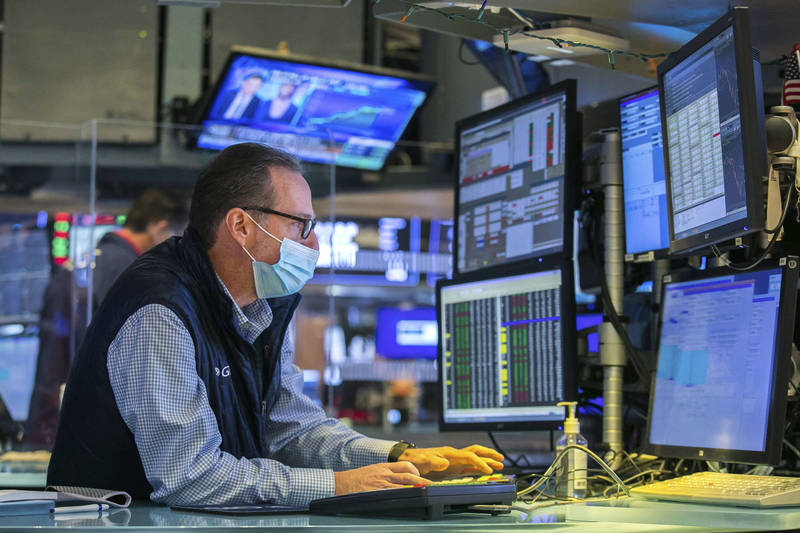Robinhood Bets on 2024: Trading the Presidential Election – A Deep Dive
Meta Description: Robinhood, 2024 Presidential Election, Election Prediction Contracts, Futures Trading, Political Betting, Investment Risks, Financial Literacy
Hey there, folks! Buckle up, because we're diving headfirst into the wild world of political prediction markets, specifically Robinhood's latest offering: the chance to bet on the 2024 US Presidential Election! It's not just about picking a winner; it's about understanding the underlying mechanics, the inherent risks, and the fascinating intersection of finance and politics. Think of it as a high-stakes game of poker, but instead of chips, you're trading contracts on the future leader of the free world! This isn't your grandpa's election night; this is the future of political engagement, and boy, is it exciting (and potentially lucrative, if you play your cards right!). This in-depth analysis will unpack the complexities, offering expert insights and real-world examples to navigate this newly opened frontier of financial speculation. We'll demystify the process, discuss the potential pitfalls, and, most importantly, help you make informed decisions. So grab your popcorn, settle in, and let's explore this electrifying development together! Remember, though, this isn't financial advice – only you can decide if this kind of trading aligns with your risk tolerance.
Robinhood's Election Prediction Contracts: A New Frontier
Robinhood, known for its user-friendly interface and commission-free trading, has thrown its hat into the ring of political prediction markets. By allowing users to trade contracts on the outcome of the 2024 Presidential Election, they've tapped into a growing interest in this unique form of financial speculation. But what exactly are these contracts? Essentially, they're a form of derivative, where the value is directly tied to the outcome of a specific event – in this case, the presidential election. If your chosen candidate wins, your contract gains value; if they lose, you lose money. It's straightforward, but the implications are far-reaching.
This move by Robinhood signifies a significant shift in how people engage with both politics and finance. It's democratizing access to a market previously considered the domain of sophisticated investors and institutional players. However, it also raises important questions about the potential impact on election integrity and the risks associated with this type of speculative trading. We'll delve deeper into these concerns later.
Understanding the Mechanics
Imagine a digital futures market, but instead of commodities or stocks, you're betting on the next President. These contracts work on a simple principle: the closer the election gets, and the more likely a candidate appears to win, the more valuable the contract tied to that candidate becomes. Conversely, if a candidate's chances diminish, the value of their corresponding contract drops. Think of it as a constantly fluctuating market reflecting real-time shifts in public opinion and polling data.
However, it's crucial to remember that this isn't a foolproof system. Unforeseen events, surprising shifts in voter sentiment, and the inherent unpredictability of elections can significantly impact the value of these contracts. This highlights the importance of thorough research, risk assessment, and a clear understanding of market dynamics.
Risk Assessment: The Fine Print
Let's be blunt: trading election prediction contracts is inherently risky. You're essentially gambling on the outcome of a highly unpredictable event. While some might see this as an exciting opportunity, it's crucial to approach it with caution. Before diving in, consider these points:
- Market Volatility: The value of these contracts can fluctuate wildly based on news events, polls, and unforeseen circumstances. A single controversial statement or a major policy shift can drastically alter the market.
- Information Asymmetry: Access to accurate and timely information is critical in this market, yet information asymmetry is always a factor. Some players may have access to more relevant data than others, creating an uneven playing field.
- Regulatory Uncertainty: The regulatory landscape surrounding political prediction markets is still evolving. Changes in regulations could significantly impact the value and legality of these contracts.
Table 1: Potential Risks Associated with Trading Election Prediction Contracts
| Risk Factor | Description | Mitigation Strategy |
|----------------------|--------------------------------------------------------------------------|---------------------------------------------------------|
| Market Volatility | Rapid and unpredictable price fluctuations | Diversification, stop-loss orders, thorough research |
| Information Asymmetry | Unequal access to information | Independent research, multiple information sources |
| Regulatory Uncertainty | Changes in regulations impacting contract validity and trading activity | Stay informed about regulatory developments |
| Emotional Decision-Making | Letting emotions influence investment decisions instead of rational analysis | Disciplined trading plan, risk management strategies |
The Ethical Considerations
The introduction of election prediction contracts raises ethical questions. Critics argue that such markets could be manipulated, influencing election outcomes or creating an unfair advantage for certain candidates. It's a complex issue with no easy answers, requiring careful consideration by regulators and the trading community alike. The potential for manipulation and the impact on democratic processes are significant concerns that need addressing.
Investing in the Future: A Calculated Gamble or a Reckless Speculation?
The question remains: is participating in Robinhood's election prediction market a calculated gamble, or a reckless speculation? The answer, as with most things in the financial world, is nuanced. For experienced traders with a high risk tolerance and a solid understanding of market mechanics, it could be a potentially lucrative avenue. However, for those less familiar with these types of markets, it's crucial to proceed with extreme caution.
This isn't about picking a winner; it's about understanding the dynamics of the market and managing your risk. Think of it as a complex game of strategy, where your success depends on your ability to analyze data, predict market trends, and manage your exposure.
Developing a Trading Strategy
A successful approach requires a well-defined trading strategy. This involves:
- Thorough Research: Stay informed about political news, polling data, and economic indicators that could influence the election.
- Risk Management: Set stop-loss orders to limit potential losses and diversify your portfolio.
- Emotional Discipline: Avoid making impulsive decisions based on emotions; stick to your strategy.
- Continuous Learning: Stay up-to-date on market trends and adapt your strategy as needed.
Frequently Asked Questions (FAQs)
Q1: Are these contracts legal?
A1: As of now, trading these contracts through Robinhood appears to be within existing legal frameworks. However, regulations are constantly evolving, so it's crucial to stay abreast of changes.
Q2: How much can I lose?
A2: You can lose the full amount invested in your contracts. This is why risk management is crucial.
Q3: Can I make a lot of money?
A3: Yes, potentially. However, significant gains are also accompanied by significant risks.
Q4: What if the election is contested?
A4: The terms and conditions for the contracts will outline how such scenarios will be handled.
Q5: Is this gambling?
A5: It shares similarities with gambling, but it also involves market analysis and risk management strategies.
Q6: How do I get started?
A6: You'll need a Robinhood account. If you're eligible, the trading option will be available through their platform.
Conclusion: A Calculated Risk with Significant Implications
Robinhood's venture into election prediction markets opens a fascinating new chapter in the intersection of finance and politics. It offers a unique opportunity for traders, but it also presents significant risks and ethical considerations. Whether this is a new era of informed political engagement or a potentially hazardous form of speculation remains to be seen. The key is informed participation, thorough research, and a disciplined approach to risk management. Remember, always gamble responsibly. And as always, consult with a financial advisor before making any investment decisions. This information is for educational purposes only and should not be construed as financial advice.



